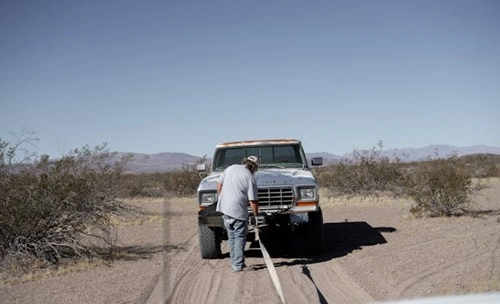No, it is not inherently illegal to have a hitch on your vehicle without towing a trailer in the United States. However, there are specific situations and state laws that could make it problematic, particularly if the hitch creates a safety hazard or obstructs the view of your license plate.
Legal Considerations for Having a Hitch Without a Trailer
Federal and State Traffic Laws
The presence of a hitch on your vehicle without towing a trailer is generally permitted across the U.S. However, some states and municipalities impose regulations to ensure that hitches do not interfere with safety or compliance with other traffic laws:
1. License Plate Visibility:
- Many states require that license plates be fully visible and unobstructed at all times. If your hitch blocks any part of the plate or makes it unreadable, you could receive a citation.
- California: Vehicle Code 5201 mandates that license plates must be clearly visible and readable at all times. A hitch that obstructs this view could lead to a fine.
- Florida: Similar laws require that no objects, including hitches, obstruct the visibility of the rear license plate.
2. Rear-End Collision Risk:
- Some states and local ordinances discourage or penalize the use of excessively large or unsafe hitches, even without a trailer, if they pose an increased risk in rear-end collisions.
3. Commercial Vehicle Regulations:
- Commercial vehicles may face stricter regulations regarding unused hitches. In certain jurisdictions, commercial vehicles must remove any unnecessary attachments when not in use.
Safety Concerns
While not always illegal, having an unused hitch on your vehicle can create potential safety hazards:
- Rear-End Accidents: In the event of a rear-end collision, a protruding hitch can cause increased damage to the other vehicle and elevate liability risks.
- Pedestrian Safety: A hitch that extends significantly beyond the rear of the vehicle can pose risks to pedestrians in crowded areas, such as parking lots.
Exceptions and Specific Situations
1. Off-Road Vehicles:
- Vehicles designed for off-road use, such as trucks and SUVs, often have hitches installed as standard equipment. These vehicles are typically exempt from concerns unless the hitch violates other laws, such as license plate obstruction.
2. Temporary Use:
- Drivers who frequently tow trailers may keep their hitches installed for convenience. This practice is generally acceptable as long as it complies with state traffic laws.
3. Local Ordinances:
- Some municipalities may impose stricter guidelines for the use of hitches. For example, certain urban areas with dense traffic might regulate vehicle attachments to minimize potential hazards.
Penalties for Non-Compliance
If your hitch violates specific state or local regulations, you may face the following penalties:
1. Fines:
Citations for obstructing a license plate typically range from $50 to $250, depending on the state.
2. Correction Orders:
In some cases, law enforcement may issue a warning or require you to remove or adjust the hitch to comply with regulations.
3. Increased Liability:
If an unused hitch contributes to property damage or injuries in an accident, you could face additional liability in civil lawsuits.
Recent Updates and Cases
1. California:
Law enforcement has increased ticketing for license plate obstructions caused by hitches, especially in urban areas like Los Angeles.
2. Florida:
Recent efforts to enforce visibility laws have included citations for improperly displayed or obstructed plates, often involving unused hitches.
3. New York:
A new proposal seeks to regulate vehicle attachments, including hitches, in high-traffic zones to improve pedestrian safety.
Tips to Stay Compliant and Safe
1. Check State Laws:
Review your state’s traffic and vehicle code to ensure that your hitch complies with license plate visibility and safety requirements.
2. Remove When Not in Use:
If you don’t frequently tow, consider removing your hitch to minimize safety risks and avoid potential fines.
3. Ensure Visibility:
Ensure that your rear license plate is unobstructed and clearly visible, regardless of whether your hitch is installed.
4. Use Smaller Hitches:
If you need to keep your hitch on, choose a model that is less likely to obstruct your license plate or pose safety risks.
Common FAQs
Q1. Is it illegal to leave a hitch on a truck or SUV when not towing?
Ans: No, it is generally not illegal, but the hitch must comply with safety and visibility regulations.
Q2. Can I get fined if my hitch blocks my license plate?
Ans: Yes, many states, including California and Florida, issue fines if your hitch obstructs the visibility of your license plate.
Q3. Do I need to remove my hitch if I’m not using it?
Ans: No, but removing it is recommended for safety and to avoid potential liability in accidents.
Q4. Are there specific regulations for commercial vehicles with hitches?
Ans: Yes, some states impose stricter rules on commercial vehicles, requiring removal of unnecessary attachments when not in use.
Q5. Can I keep a hitch on my car in urban areas?
Ans: Yes, but ensure that it complies with local ordinances and does not pose a hazard to pedestrians or other vehicles.


